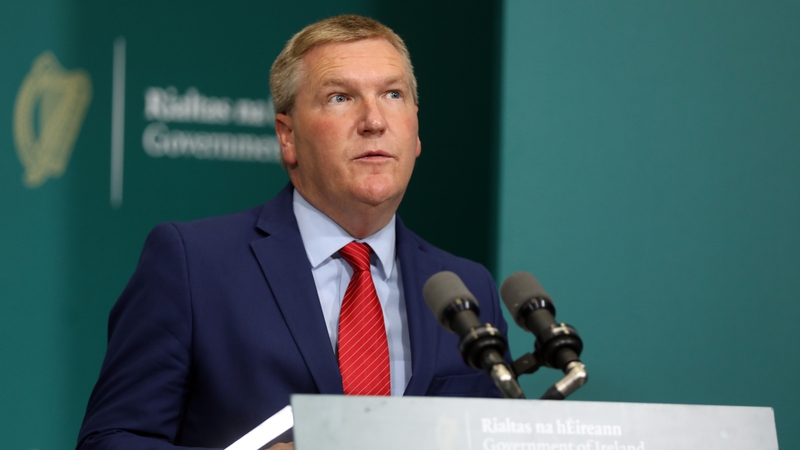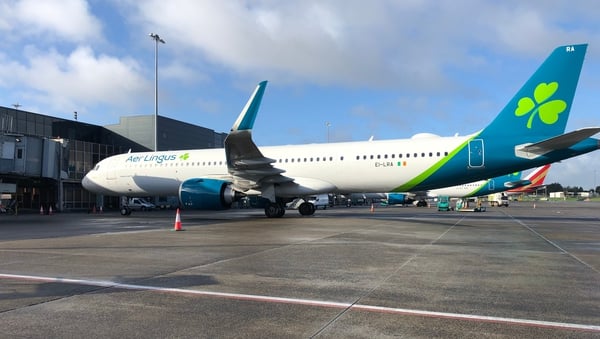Formal negotiations on a new public service pay agreement are to start later this week, after Minister for Public Expenditure and Reform Michael McGrath today issued an invitation to public service unions to talks.
In a statement, Minister McGrath said that having discussed the matter with his government colleagues, he believed an opportunity now exists to intensify talks on an appropriate successor to the Public Service Stability Agreement, which expires at the end of December.
The Minister sounded a note of caution about the potential outcome of the talks, saying: "These will be difficult discussions against a very challenging backdrop.
"Any agreement has to be appropriate to the context the country is currently facing and must be sustainable in the face of considerable economic uncertainty."
@irishcongress Public Services Cte represents all ICTU-affiliated unions with members working in civil/public service. Met this am and decided they would accept invitation to formal negotiations if one was made. The invitation has since been received from Michael McGrath.
— Ingrid Miley (@ingridmileyRTE) November 24, 2020
However, Mr McGrath expressed the view that there was scope for all parties to engage constructively towards an agreement benefitting everyone, including citizens and businesses relying on essential public services, as well as the staff who work so hard to provide them.
Earlier, the Public Services Committee of the Irish Congress of Trade Unions met "... in anticipation of an invitation to formal talks."
The committee, which represents all Congress-affiliated unions with members working in the civil and public service, decided that it would accept an invitation to formal negotiations "if one was made".
"The invitation has since been received from the Minister for Public Expenditure and Reform," it said this lunchtime.
Last week, the Chair of the Public Services Committee, Forsa General Secretary Kevin Callinan, confirmed that engagements with DPER had "intensified significantly", and this morning's meeting heard a report on progress in those exploratory talks aimed at establishing whether there was a basis for formal talks.
Unions have already been told that there is little likelihood of pay rises in 2021, a view echoed by Tánaiste Leo Varadkar yesterday when he ruled out significant pay rises for government employees in any new agreement due to the unprecedented scale of exchequer borrowing required to address Covid-19 challenges.
Other issues sure to be on the talks agenda include a union demand that the additional unpaid hours imposed in the 2013 Haddington Road Agreement should be abolished.
HSE Chief Executive Paul Reid, who led the government negotiating team for the Haddington Road deal, recently told the Industrial Relations News Conference that the additional hours were always intended to be permanent, "as part of a sustainable model to improve public service efficiency".
He noted that rosters and service delivery were built around the additional hours, and would face difficulties without them.
Pay inequality for post-2012 recruits is also likely to be a key issue, as will unresolved sectoral pay claims.
The Representative Association for Commissioned Officers in the Defence Forces has said it has concerns about entering talks on the next public service pay agreement where the outcome may already have been decided.
General Secretary Conor King cited media reports referring to progress in exploratory talks which have been underway between the Public Services Committee of the Irish Congress of Trade Unions and officials of the Department of Public Expenditure and Reform, which oversees public service pay.
Garda and Defence Forces representative associations are not permitted to affiliate to the ICTU, and pay talks with them generally take place within a separate strand.
RACO has written to the Department of Public Expenditure and Reform saying that before it can accept Minister Michael McGrath's invitation to talks, it requires information "on the parameters that have been agreed with the ICTU affiliated organisations over the last number of days talks, from which RACO and other staff associations were excluded".
He asks what was the outcome of those talks and on what basis agreement was reached for pay talks to commence.
The RACO General Secretary also queries whether there will be a sectoral bargaining element to the talks, and what « quantum/percentage » has been tabled.
In addition, he questions whether the rolling back of additional unpaid hours introduced for public service staff in 2013 has been agreed.
Mr. King said: "RACO members are concerned about entering a process where the outcome may have already been decided, and require clarity as to how it is envisaged that the previous commitments made in the Government Plan Strengthening our Defence Forces are going to be delivered during these pay negotiations."
The Public Service Stability Agreement is a three year pay deal which ran from 2018 and expires on 31 December next.
Talks will begin later this week at the Workplace Relations Commission in line with public health restrictions.






